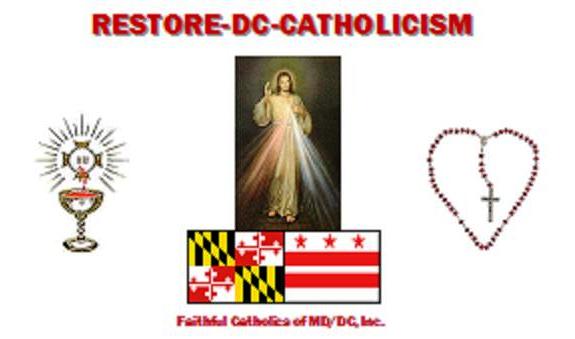Almost two weeks ago I noted the peculiar definition of "dissent" as coined by Cardinal Wuerl in a blog post that he wrote. He hopes to warp the meaning of the word to convey "one who disagrees with the pope because he does not agree with them and therefore follow their position". Yes, I agree the structure of that sentence is awkward but it isn't mine. The structure is twisted because of the attempt to twist the meaning of the word "dissent".
Because almost everyone with a brain understood him to imply that Cardinal Burke is a "dissenter" (according to his odd definition of that word), he felt impelled to go into "damage control" mode. Often, though, "damage control" winds up causing more damage. America magazine interviewed him. (Hint: For examples of "dissent" as the word is classically defined, just read an issue or two of that rag! But I digress!) As my friend at the Tenth Crusade noted, the Cardinal does a "Fred Astaire", or at least he attempts it.
Here's a rather telling statement from him, regarding the sin-nod (in response to the first question). "In the closing hour of that daylong discussion, I noted in my brief intervention that obviously there is no challenge to the teaching of the church on the indissolubility of marriage. I also pointed out that many participants distinguish between the doctrine on marriage and the pastoral practice of reception of Communion for those divorced and remarried." (Italics mine) May I assume from this that in addition to Cardinal Burke being a "dissenter", that Cardinal Gerhard Muller also fits Wuerl's definition of that word? Cardinal Muller did state, "Each division between ‘theory’ and ‘practice’ of the faith would be a reflection of a subtle Christological ‘heresy." What Cardinal Muller said is very true. Those "many participants that Cardinal Wuerl mentioned are dabbling in heresy. Enough of that for now.
Three days ago, Cardinal Wuerl posted another piece on his blog. This one is entitled, "Silencing The Church's Voice". In it he voices this complaint: "But today there is a new challenge. Some who reject the Church’s teaching – who choose to live by another set of values – not only find the voice of Christian values annoying, they would like to see it silenced or at least muted. Thus we have a whole new upside down version of words like 'discrimination,' 'freedom' and 'human rights,' and laws to enforce the new meaning." While these words are true enough, they ring ironic and I daresay hypocritical in light of his treatment of Father Marcel Guarnizo three years ago. I now present an anthology of posts I did as that incident and its fallout were unfolding at the time. To reiterate: Father Guarnizo withheld Holy Communion to a flagrantly practicing lesbian. This woman and her cohort raised a ruckus, whereupon the Archdiocese of Washington immediately surrendered to the gay community and threw Father Guarnizo under the bus. In this scenario it was Cardinal Wuerl who played the part of the one "silencing and muting the voice of Christian values". If he truly is serious about what he wrote three days ago, he might want to revisit his conduct (along with Bishop Knestout) of three years ago for his actions against Father Guarnizo can only have emboldened those who seek to stifle Christian morality in our culture today.
Another cleric who tried to silence the "voice of Christian values" is Father Thomas Rosica. You might recall that he threatened to sue David Domet, the blogger behind Vox Cantoris because he had been shining the light on Father Rosica's misconduct. After other faithful Catholics (and bloggers) got wind of it, we caused that light to be glaring. Father Rosica caught a glimmer of that light (or he was instructed by higher-ups to stand down) and backpedaled on his legal threat.
Along with prayer, we'll have to continue to speak out. If we shine the light on these folks relentlessly, we can at least mitigate the damage if not eliminate it altogether.

No comments:
Post a Comment
Please be respectful and courteous to others on this blog. We reserve the right to delete comments that violate courtesy and/or those that promote dissent from the Magisterium of the Roman Catholic Church.